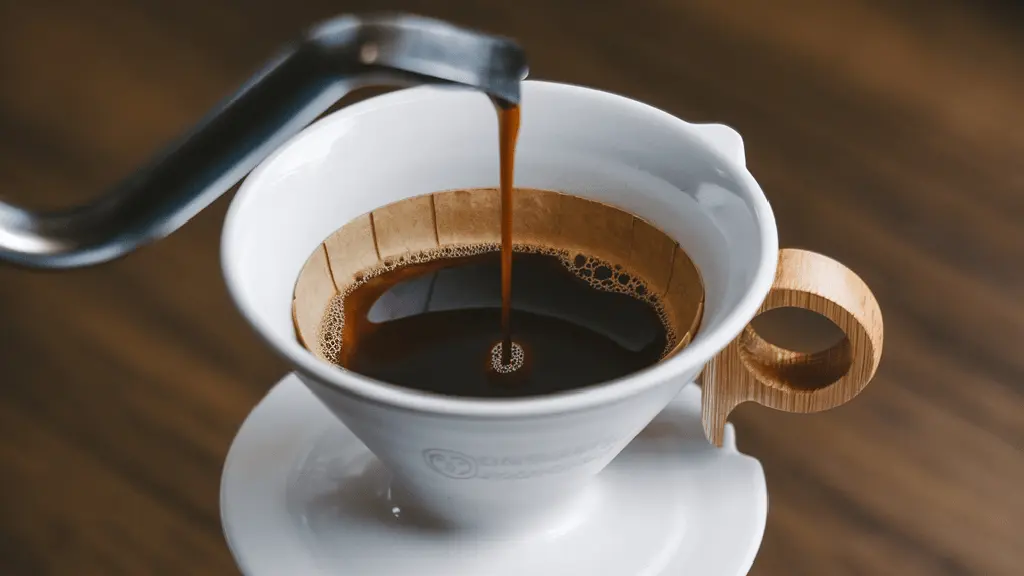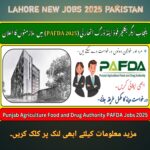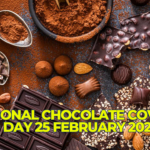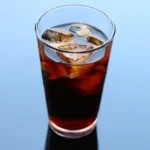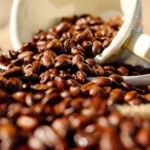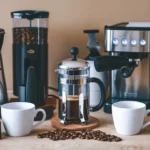Did you know that water makes up over 98% of your cup of coffee? This makes the quality of tap water for coffee one of the most crucial factors in brewing a perfect cup. While we often focus on beans and brewing methods, the water we use can make or break our coffee’s taste.
For the best-tasting flavors, the right coffee brewing water requires the ideal character. Ideally, the water is moderately hard with a balanced content of minerals – mostly magnesium and calcium in a 2:1 ratio. We’ve found that temperature counts too, between 90°C and 96°C for optimal extraction. Poor-quality water leaves our coffee tasting flat, bitter, or dull, whereas great-tasting water enhances the rich flavors and aromas of our favorite beans.
In this guide, we’re going to cover how water impacts your coffee’s taste, what makes perfect brewing water, and how you can improve your tap water for better coffee at home.
The Science Behind Water in Coffee
There is an interesting chemical dance between water and roasted beans in brewing coffee. There are many key compounds present in coffee, aside from water, that help to determine its distinctive flavor and aroma. A typical bean of coffee comprises caffeine (2-3%), tannins (3-5%), proteins (13%), and fixed oils (10-15%).
During the brewing of coffee, extraction takes place in a certain order. The acids and fats are pulled out first as hot water encounters ground coffee. Sugars are drawn next, and finally, plant fibers are broken down 2. The temperature of your brewing water will make a big difference in this process-the ideal range falls between 91-94°C (196-201°F).
Minerals in your tap water are particularly interesting for coffee brewing. Calcium and magnesium are crucial for extracting flavor compounds. Magnesium enhances sweetness and brings out floral notes, furthermore, at 20 parts per million, it creates the most balanced taste. Calcium adds body and creates a creamy mouthfeel that many find desirable.
Primary compounds water extracts from coffee in order:
- Acids and fats (with fruity notes)
- Sugar (provides sweetness)
- Vegetable fibers (add body)
pH of the water used to brew your coffee is yet another factor affecting extraction. High-alkaline water will not let the acids prevail, and so the final flavor is altered. Besides, the minerals present should also be in perfect balance; very few minerals yield a flat flavor, and excessive minerals overwhelm subtle flavors.
These interactions help explain why tap water quality so profoundly affects your coffee’s taste. The particular combination of compounds in your water before brewing determines how well it extracts coffee’s complex flavors.
Regional Water Variations and Coffee Quality
The water flowing from your tap varies dramatically based on where you live. In Australia alone, water hardness levels range from 100 ppm in Melbourne to over 500 ppm in Perth. These regional differences shape how your coffee tastes and extracts.
1. Understanding your local water source
- Your tap water for coffee comes primarily from two sources:
- Groundwater from natural wells and reservoirs
- Surface water from rivers, lakes, and reservoirs
Groundwater usually contains more minerals since it infiltrates through various layers of bedrock. Surface water, although more depleted in minerals, often contains more sediment and organic materials impacting taste.
3. How geography impacts water composition
The rocks and soil in your area will dictate your water mineral levels. In the early stages of processing, treatment facilities introduce substances that render the water drinkable. Normally, saltwater coasts face problems, particularly increased levels of iron chlorides. This accounts for the difference in the same type of coffee beans, from region to region.
3. Water Problems Associated with Regional Area
Water quality is one of the biggest ongoing challenges to brewing great coffee. Specifically, water with high mineral loads makes full extraction impossible, leading to a weak-bodied cup with off-flavors. Mainly, municipal tap water quality varies greatly – whereas some cities deliver great water, most contain high levels of chlorine and other byproducts that muddle complex coffee notes.
Climate change essentially exacerbates these issues. Higher temperatures and flood events contribute to the contamination of water sources due to the higher amount of sediments, pathogens, and pesticides. This impacts not only the quality of water but also coffee production as temperature and water stress affect coffee’s sensory properties.
To maintain consistency, most coffee houses today utilize advanced filtration technologies. Knowing the makeup of your city’s water ensures you whether or not to supplement – some areas have very low maintenance needs while others require advanced filtration systems .
Professional Water Treatment Methods
Professional water treatment methods have become increasingly sophisticated in response to varying tap water quality challenges. Indeed, water treatment systems protect both equipment longevity and coffee flavor quality
1. Commercial filtration systems
Professional water treatment techniques have evolved significantly in response to tap water quality variability. Indeed, water treatment systems safeguard equipment longevity and quality coffee flavor.
- Modern coffee shops employ multiple filtration stages to achieve optimal coffee brewing water. The primary treatment options include:
- Mechanical filtration: Removes sediment and particles
- Carbon filtration: Eliminates chlorine and organic compounds
- Scale inhibition: Prevents mineral crystallization
- Ion exchange: Swaps calcium and magnesium for sodium
- Reverse osmosis: Removes up to 97% of dissolved solids
2. Reverse Osmosis Explained
Reverse osmosis (RO) is the most exhaustive treatment of water. This treatment forces water through a semipermeable membrane under high pressure, thus removing up to 95% of total dissolved solids. However, the use of pure RO water only can lead to a flat-tasting coffee.
3. Mineral addition techniques
Therefore, professional systems include mineral addition or blending valves to attain ideal water composition. The process usually targets 50-80 ppm calcium carbonate hardness. In addition to hardness control, mineral addition balances pH levels between 7 and 8, which has been found optimal for coffee extraction.
The best mineral mixtures contain magnesium chloride for body and complexity, mostly calcium chloride for texture and sweetness. Commercial brewing systems typically rely on potassium bicarbonate or sodium bicarbonate to make alkalinity adjustments, thus producing the optimal balance for extraction in coffee.
Creating Your Perfect Brewing Water
Making perfect coffee brewing water at home does not need professional equipment. A standard domestic filter jug is an excellent starting point for improving your tap water for coffee.
1. DIY water treatment solutions
Basic water filters serve only two purposes: softening hard water and removing impurities like iron and copper that affect the taste. Or, you can check your water quality using an aquarium testing kit, which measures pH, GH, and KH levels 8. For places where the water is soft, carbon sticks remove impurities well.
2. Preparing with mineral packets
Mineral packets allow for an accurate formulation of brewing water. A typical mineral packet usually contains:
- Calcium for rich body and mouthfeel 2
- Magnesium for balanced extraction
- Bicarbonate for optimal pH
- Maintaining consistent water quality
Water quality needs to be monitored and adjusted regularly. At some point, you will need to replace filters or refresh mineral additions based on your usage patterns. To get consistent results, keep the water temperature between 195-205 degrees Fahrenheit.
One more practical way is to make spring water as your base. Steer clear, though, from using reverse osmosis-treatment water because that strips away the dissolved solids completely and gives rather unappetizing-tasting coffee. Filtered water can be a good option. Its pH is preferably neutral for maximum extraction of your coffee bean flavor profile.
Q1. How does water quality affect coffee taste?
Water quality significantly impacts coffee flavor. Since coffee is over 98% water, the mineral content and impurities in your water directly influence extraction and taste.
Q2. Is tap water suitable for brewing coffee?
Tap water can be suitable for brewing coffee, depending on your local water quality. In areas with good tap water, it may produce excellent results.
What’s the ideal water composition for coffee brewing?
The ideal water for coffee brewing should have a balanced mineral content, particularly calcium and magnesium. The Specialty Coffee Association recommends water with no odor or color, zero chlorine, a pH of 7.0, alkalinity of 40 ppm, and calcium hardness between 50-175 ppm. This composition helps extract optimal flavors from coffee beans.
Should I use bottled water for my coffee machine?
Using bottled water in your coffee machine can be beneficial, especially if your tap water is very hard or has strong flavors. However, not all bottled waters are ideal for coffee brewing. Look for bottled water with a balanced mineral content, or consider using a water filter designed for coffee brewing.
